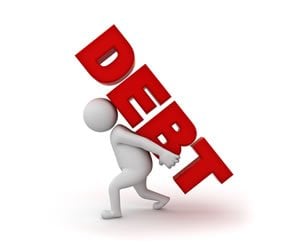Last Updated on June 27, 2022 by Laura Turner
Attending college and earning a degree is a major accomplishment, but most people don’t have the resources to get their education paid for without help. While there are scholarship and grant programs available to help you out, loans are usually the popular option for students trying to pay their way through school.
The time to pay those loans back comes once you’ve stepped off stage and graduated. If you haven’t kept track of how much you owe, the final figure can be quite intimidating. To ease your stress, it’s important to financially plan and prepare for loan repayment. With that said, here are six smart ways to pay off your student loan.
Consider Consolidating Your Loans
Loan consolidation isn’t for everyone who’s graduated with student debt, but it can help some people. Grouping all of your loan payments into one makes paying off your loan more convenient, since you only have to deal with one service provider. Consolidation also extends your payback period, offering you lower payments in the short-term but higher interest payments in the long-term. To find out whether consolidating your loans is the best option for you, learn more about its pros and cons here on studentaid.
Enroll in Auto-Payment
Paying off your student loans isn’t just tough on you physically – a $40,000 loan in 10 years means a lot of work hours – but it can also be emotionally draining every time you have to give away another large chunk of money. When you enroll in auto-payment, your student loan service provider automatically takes money from your bank account without you noticing – well, kind of.
Auto-payment gives you a peace of mind by making sure you never miss a payment. Additionally, you can receive a loan discount of 0.25 percent for enrolling. That might not seem like a lot, especially if that $40,000 number is still stuck in your head, but it adds up to a nice chunk of savings over time.
Make Bigger Payments Than Required
As obvious as it sounds, most people don’t realize how much of a difference a bigger monthly payment makes to your overall loan. When you make a payment, you pay off the interest that has accrued since your last payment. Whatever is left after your interest is paid goes toward lowering your principle balance. The more of your principle balance you pay off, the less interest you’ll accrue over the lifetime of your loan. In short: make bigger payments now and smaller ones later however be careful on which debt payments you decide to apply this method to. Trent from the SimpleDollar explains here why you shouldn’t make bigger payments then required on all of your debt. View the article to learn more about how to apply this method correctly.
Earn More or Spend Less
Every financial situation is different, but if you want to pay off your student debt in a reasonable amount of time then you either have to earn more money or cut costs. To take care of a student loan, you sometimes have to makes sacrifices that you might not necessarily like. If you can’t find a job that pays more, stop spending money on items you don’t need.
Living below your means is one of the fastest ways to pay off your student debt. Buying a house and paying a homeowners insurance quote (no matter how reasonable the rate) while you still have student debt isn’t smart. Although not having your own home might initially seem like too much of a sacrifice, it’ll pay off in the end when don’t have student debt and you can finally adopt that lifestyle you want and can finally afford.
Michael Lux, an Indiana attorney and author of The Student Loan Sherpa, provides the best tips from around the web on how you can earn more and spend less.
Don’t Forget About Tax Deductions
If you earn less than $60,000 annually, you can deduct up to $2,500 of the student loan interest you’ve paid in the last year from your taxes. You’ll receive a 1098-E form in the mail – if you’ve paid more than $600 in interest to a single lender throughout the year – that’ll provide you with exact figures. You don’t need this form to get the deduction, but you’ll want to keep it in your records just in case. Forms and more detailed instruction can also be found on the IRS website under the topic 456.
Also, if you get a tax refund, consider investing all of it into paying off your student loan. Some refunds checks can be quite large, so making that huge payment on your loan can put a dent in it.
Volunteer or Work in Public Service
If you have a full-time position in a public service job, you may qualify for Public Service Loan Forgiveness. Additionally, you can receive education awards or partial loan cancellations by volunteering in program likes the AmeriCorps and Peace Corps. Peace Corps volunteers can have up to 70 percent of their federal loans cancelled, depending on how long they serve. They can also receive a $7,425 award after 27 months of service, which can be used toward paying off student debt.
Have you had success paying off your student loan debt? Share your story in the comments.
Author Bio
Annie Davis is a freelance writer from Tampa FL. When she is not writing, she enjoys reading, kayaking, traveling, and keeping up with the latest gossip news. If you would like to reach Annie Davis, you can contact her at [email protected]

